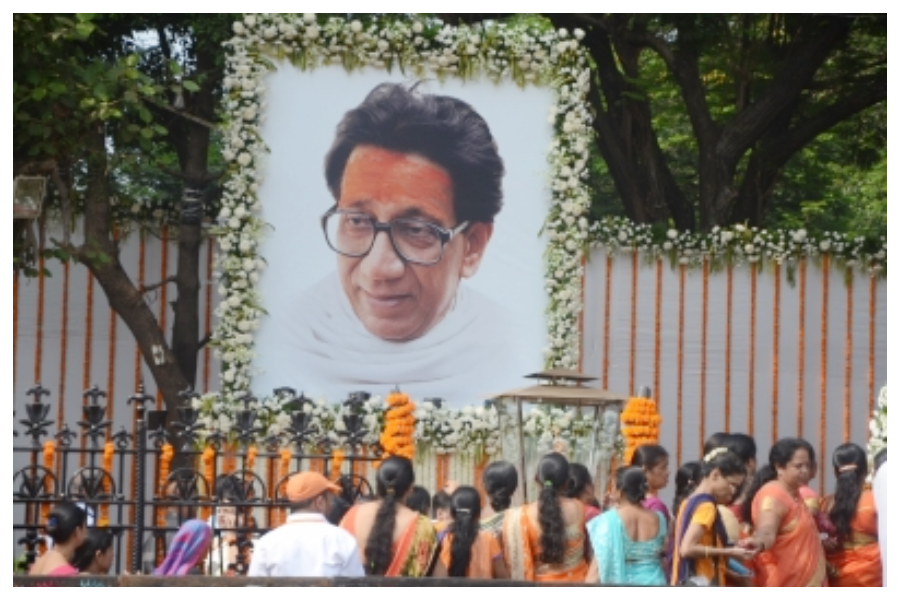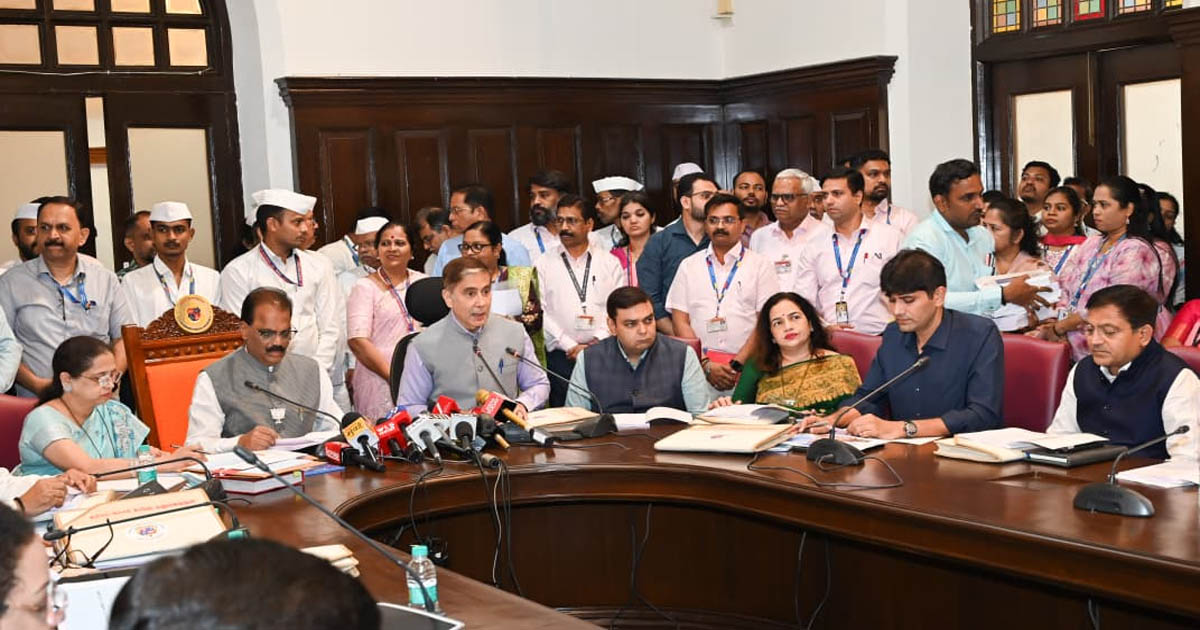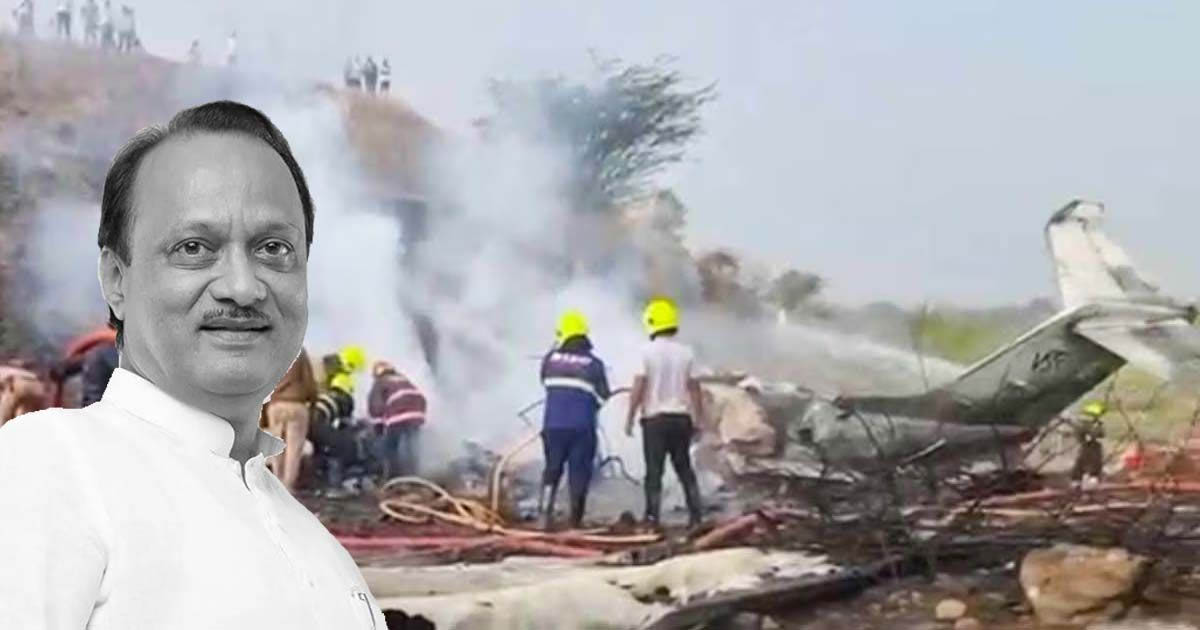Maharashtra
When Balasaheb Thackeray safeguarded the future of a displaced community

More than three decades ago, when thousands of Kashmiri Pandits fled the terror nightmare in their homeland in 1990 to seek refuge elsewhere in India, many landed in Mumbai, the City of Dreams, and Pune, the academic capital of Maharashtra.
A majority of the uprooted Kashmiri Pandits, with their parents, wife and children, escaped from certain death with hardly anything more than the clothes they wore, and spent months in agony and uncertainty over how to rebuild their future from scratch in strange surroundings.
Maharashtra was the only state which opened its doors, hearts, wiped their tears and helped the Kashmiri Pandits grow new roots in this state, over a couple of thousand kms away from their birthplace.
“At that time, a group of Kashmiri Pandits met the roaring tiger of Shiv Sena, Balasaheb Thackeray. Led by the late Lt Gen (Retd) P.N. Hoon, the delegation discussed the entire issue of Kashmiri Pandits threadbare with the Sena Pramukh,” said Sanjay Nahar, who runs an NGO, Sarhad, in Pune.
Acclaimed author-journalist Rahul Pandita, a teen then, recalls how the Kashmiri Pandits — though penniless — did not seek monetary aid from Balasaheb Thackeray, but wanted something that could help them stand on their feet and make them independent in the long run.
Nahar said the delegation requested Balasaheb Thackeray to use his good offices and offer the Kashmiri Pandits reservations in technical or engineering courses in various academic institutions here.
Interestingly, the meeting was facilitated by a reserved, young journo — Sanjay Raut — now the stormy petrel of the Sena and its chief spokesperson.
Balasaheb Thackeray readily agreed to the proposal — though some opposition parties then had sniggered — and sowed the seeds for affording a stable future to an entire generation of Kashmiri Pandits.
Amit Wanchoo — the grandson of the legendary H.N. Wanchoo who was assassinated by terrorists in December 1992 — said that it was only Balasaheb Thackeray then “who threw a lifeline to Kashmiri Pandits” when they had nobody to call their own.
“Many had no funds or friends, spent months in dirty cattle-sheds or slums, worrying about their future. We always believed that education is important for children, but educating them away from their homeland was a big challenge,” said Wanchoo.
He is among the few who decided to remain in Kashmir despite the near-total exodus by his fraternity.
With Balasaheb Thackeray throwing open all the higher-technical-engineering institutions for Kashmiri Pandits, thousands took advantage to enrol themselves and encounter the future with confidence, and around 7,000-8,000 have benefitted, said Nahar.
More importantly, Pandita said that the gesture came without any ‘strings attached’, and Balasaheb Thackeray never treated them as any kind of ‘a political vote-bank or a bargaining tool’, and it remained a totally unselfish measure.
Sena MP Raut remembers the days when Balasaheb Thackeray was the sole person who spoke for the Kashmiri Pandits when the rest of the country kept quiet in dread of the terrorists.
“When the delegation met Balasaheb Thackeray, he openly advocated giving arms to the Kashmiri Pandits for their self-defence… Instead, they asked for educational quotas, which he readily agreed to and allowed 5 per cent reservation in the state. Nobody knows the pain of the Kashmiri Pandits more than the Shiv Sena,” Raut said.
Pandita and Wanchoo point out how many Kashmiri Pandits occupying top positions in Indian government or in leading companies worldwide had benefited from Maharashtra’s generosity in their darkest hour.
Wanchoo said that inspired by Balasaheb Thackeray, even Maharashtra proved magnanimous towards Kashmiri Pandits and contributed their mite to wipe the tears of their brethren from the snowy Valley.
“I met him in 1994 and he was surprised to learn that some — like me — still opted to live on in Kashmir. There were many young students living in home-stays, rentals or as paying guests in Maharashtra. But when they couldn’t afford to pay their dues, the local owners/families quietly waived them off,” said Wanchoo.
Nahar recalled the times when many Kashmiris — Pandits, Hindus, Muslims and Sikhs — who became ‘refugees’ overnight, had problems with even basics like food and clothes and many NGOs came forward in Mumbai, Pune, Aurangabad, Nashik and other cities to care for them.
According to Pandita and Wanchoo, “we are indebted to Balasaheb Thackeray and till now, we consider Maharashtra as our ‘second home’ for all practical purposes”.
Years later, Balasaheb Thackeray’s initiative bloomed across the country with other states and even the Centre coming up with various reservations, quotas, grace marks, certain privileges etc. for the Kashmiri Pandits/Muslims/Sikhs, that ensured the displaced persons secured a firm foothold in life.
Maharashtra
Abu Asim response to Nitesh Rane’s statement that madrasas are the base of terrorism: Rane is a liar

Mumbai: Maharashtra Minister Nitesh Rane, while demanding a ban on madrasas, called them a haven for terrorism and showed hostility towards Muslims, on which Maharashtra Samajwadi Party leader and MLA Abu Asim has called Nitesh Rane a liar. He said that Nitesh Rane is lying about madrasas. No training for terrorism is given in madrasas in our country. This is the brainchild of Nitesh Rane. If there is any doubt, then madrasas should be monitored 24 hours a day with cameras. Defaming madrasas is just part of divisive politics. The fact is that madrasas educate orphans and poor children and make them good human beings. If we look at history, the students of these same madrasas sacrificed their lives for the country’s freedom. The purpose of madrasas has always been to serve humanity. BJP’s politics is now limited to Muslims, mosques, prayers and madrasas. He said that the way BJP and Nitesh Rane are conspiring to defame madrasas, they can never succeed in their goal because this madrasa is not your lair, but the people are made from the soil of this place. Politics is involved in all the allegations made against madrasas and that is why there is no need to pay attention to Nitesh Rane’s words, his job is to spread poison and divide Hindus into Muslims.
Maharashtra
Mumbai Municipal Corporation presents budget with deficit of Rs 80,952.56 crore for 2026-27, 8.77% increase in expenditure over last year’s estimate

Mumbai: Municipal Corporation (BMC) has presented its deficit budget for the current financial year. It has presented a budget of Rs 80,952.56 crore for the financial year 2026-27, against an estimate of Rs 89.84 crore. Municipal Commissioner Bhushan Gagrani presented the budget along with Standing Committee Chairman Prabhakar Shinde.
The new expenditure is higher than the previous year’s budget of Rs 74,427.41 crore. The civic body said it has adopted a policy of reducing administrative expenditure and has made strong arrangements for development works.
The corporation currently has Rs 81,449 crore and 32 lakh crore. Of this amount, Rs 44,826 crore and 23 lakh crore are earmarked deposits and cannot be used. The remaining amount of Rs 36,623 crore and 09 lakh crore can be used for other civic projects.
Officials said the corporation may break some deposits to fund infrastructure and development initiatives.
A key policy decision in the budget relates to outdoor advertising. The civic body has imposed a complete ban on billboards larger than 40 by 40 feet. It will also not allow billboards on footpaths or building roofs. No new approvals will be given for such structures. The move is aimed at improving public safety and curbing dangerous hoardings.
The budget has provided Rs 5,237 crore for the health department for 2026-27. The civic body also said that 1.35 crore citizens have availed services at the Hindu Hardai Samrat Balasaheb Thackeray Hospital. It plans to introduce free AI-based treatment for diabetes and eye diseases at the hospital.
To tackle the rising air pollution in the city, the corporation has allocated Rs 159.82 crore for environment and cleanliness. The budget includes Rs 1,000 crore as grant to BEST. The education department has been allocated Rs 4,248.8 crore. Solid waste management gets Rs 580.82 crore, while the storm water drainage department gets Rs 1,800 crore.
The allocation for infrastructure is Rs 6,875 crore for roads and transport, Rs 9,650 crore for bridges, Rs 950 crore for coastal road project, Rs 1,330 crore for water engineering and Rs 6,600 crore for sewerage project works. Rs 800 crore has been allocated for parks and zoos. The budget emphasizes administrative expenditure for infrastructure development.
Maharashtra
Mumbai: Ajit Pawar plane crash, Marine Drive police station refuses to register case against MLAs

Mumbai: Police has refused to register a case in the Ajit Pawar plane crash case. NCP leader MLA Rohit Pawar along with other MLAs had today gone to Marine Drive police station and demanded that a case be registered in the Ajit Pawar plane crash or conspiracy case. The process of recording his confession statement was also going on, but in the meantime, the DCP and Additional Police Commissioner refused to register a case and said that a case cannot be registered in this matter. Expressing his displeasure, Rohit Pawar said that the purpose of registering an FIR today is that the DGCA has issued a circular on the basis of which action has been taken regarding the VSR company, on this basis the VSR company is responsible for this plane crash, yet the police have refused to register a case. He said that any citizen can register a complaint at the police station, this act says, but contrary to this, the police have refused to register a case. He said that efforts are underway to save the VSR company. He said that the police register cases for other crimes including assault, but why is the police not registering a case on the incident that happened with a Maratha leader and Deputy Chief Minister Ajit Pawar? This is completely wrong. Our struggle will continue until justice is achieved. He said that tomorrow morning we will try to register a complaint at the Baramati police station. Rohit Pawar expressed his disappointment and said that if a Deputy Chief Minister does not get justice, then what will happen to the common man? Regarding the registration of a case in the case of Deputy Chief Minister Ajit Pawar, the ruling party BJP has also taken its stand that a case should not be registered in this matter, while it has also recommended a CBI inquiry into this matter, but despite this inquiry, we have the right to register an FIR, yet we are being deprived of it and have refused to take an FIR.
-

 Crime4 years ago
Crime4 years agoClass 10 student jumps to death in Jaipur
-

 Maharashtra1 year ago
Maharashtra1 year agoMumbai Local Train Update: Central Railway’s New Timetable Comes Into Effect; Check Full List Of Revised Timings & Stations
-

 Maharashtra1 year ago
Maharashtra1 year agoMumbai To Go Toll-Free Tonight! Maharashtra Govt Announces Complete Toll Waiver For Light Motor Vehicles At All 5 Entry Points Of City
-

 Maharashtra1 year ago
Maharashtra1 year agoFalse photo of Imtiaz Jaleel’s rally, exposing the fooling conspiracy
-

 National News1 year ago
National News1 year agoMinistry of Railways rolls out Special Drive 4.0 with focus on digitisation, cleanliness, inclusiveness and grievance redressal
-

 Maharashtra1 year ago
Maharashtra1 year agoMaharashtra Elections 2024: Mumbai Metro & BEST Services Extended Till Midnight On Voting Day
-

 National News1 year ago
National News1 year agoJ&K: 4 Jawans Killed, 28 Injured After Bus Carrying BSF Personnel For Poll Duty Falls Into Gorge In Budgam; Terrifying Visuals Surface
-

 Crime1 year ago
Crime1 year agoBaba Siddique Murder: Mumbai Police Unable To Get Lawrence Bishnoi Custody Due To Home Ministry Order, Says Report




















